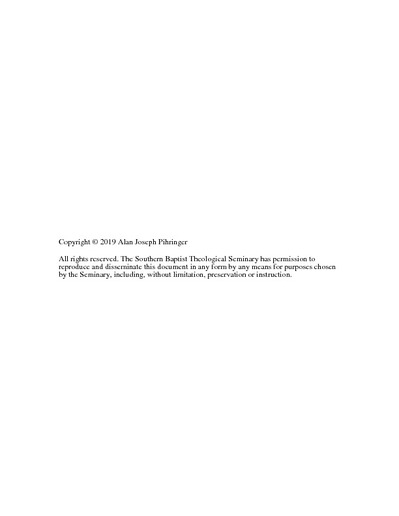| dc.description.abstract | This dissertation considers an approach toward Christian apologetics that tests the veracity of truth-claims from within the scope of entire worldviews, demonstrating how it is an effective approach for validating Christianity’s truthfulness, revealing other worldview’s falseness, and neutralizing arguments against the apologetic task itself.
Chapter 1 sets forth a history of how Christian apologetics dealt with problems and challenges of the different ages and considers how one of the best approaches to modern challenges to the faith is to test the veracity of truth claims from within the scope of entire worldviews.
Chapter 2 discusses the history of the inception of worldview as a concept within Christian thought and how recent apologists have taken worldview analysis as their approach to defending the faith.
Chapter 3 considers the use of abductive reasoning—inference to the best explanation— within Christian apologetics, analyzing how abductive reasoning fits within the scope of testing worldview truths.
Chapter 4 reflects on the philosophic underpinnings for testing the truthfulness of competing worldviews. Certain foundational epistemological theories of truth taken together make a cumulative test for truthfulness that is best able to analyze the claims of various worldviews. The coherence theory tests the logical consistency of worldviews, the correspondence theory tests the empirical adequacy of a worldview, and the pragmatic theory tests the livability or of a worldview claim.
Chapter 5 considers the four life questions (of origin, meaning, morality, and destiny) that give the context within which these tests of truth analyze the various worldviews. Testing worldviews within the scope of these questions is a viable approach to almost every classification of worldview, be it atheistic, theistic, or pantheistic.
Chapter 6 closes the study of this approach by illustrating how one can practically use the paradigm in presenting the apologetic and answers how this approach crosses many of the barriers to the task at hand, hopefully spurring further conversation and intellectual inquiry into this subject matter. | en_US |

